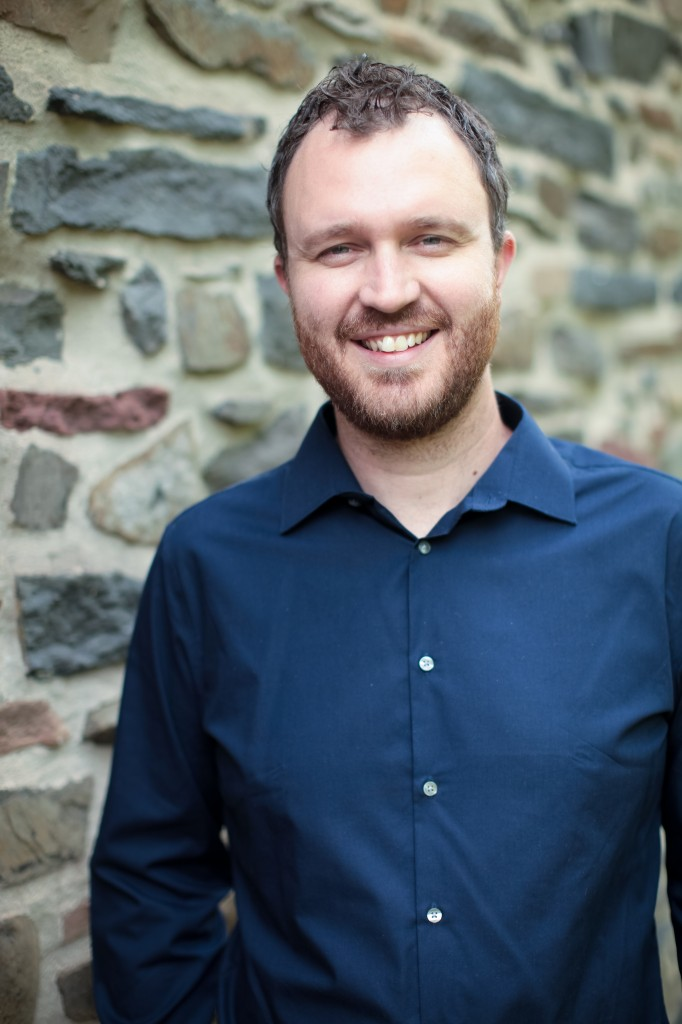 Ben Wideman is a part-time pastor and the producer of MennoMedia’s ~ing Podcast. He lives in State College, Pennsylvania, where he was a campus minister at Penn State University for six years. An avid disc golfer, cyclist, homebrewer and Toronto Blue Jays fan, he also enjoys exploring central Pennsylvania with his spouse and children.
Ben Wideman is a part-time pastor and the producer of MennoMedia’s ~ing Podcast. He lives in State College, Pennsylvania, where he was a campus minister at Penn State University for six years. An avid disc golfer, cyclist, homebrewer and Toronto Blue Jays fan, he also enjoys exploring central Pennsylvania with his spouse and children.
______________________________________________
Grief has a way of sneaking up on us.
As a small group of MennoMedia-connected folks sat down to start shaping the second season of ~ing Podcast, we wondered if we might spend a few episodes focusing on the life and legacy of Michael “MJ” Sharp. From an organizational perspective, MJ’s life story seemed like a deeply relevant story to be lifted up. Author Marshall King was in the process of putting together the final edits on his biography, “Disarmed: The Radical Life and Legacy of Michael ‘MJ’ Sharp,” and our small team had a number of personal connections to MJ. And Eastern Mennonite University’s (EMU) Center for Justice and Peacebuilding was interested in collaborating on a crossover episode.
I felt some confidence that I would be able to piece together a meaningful series. MJ had been a friend of mine during our shared years at EMU, and I had been able to connect with his parents a few times in the years since his death.
During the past few months, I’ve been honored to share sacred space of remembrance with people who knew and loved MJ. I spoke with Marshall about his book writing process; with MJ’s parents, for whom grief still feels very close to the surface; with our college classmates, who still carry MJ’s influence and spirit as they move about the world; and with a young peacebuilder from Congo, who received one of the first EMU scholarships in MJ’s name.
I wasn’t prepared for the waves of emotion that would pass over me.
I had assumed that enough time had passed that I could easily navigate this difficult story without much pain or processing. My assumption was that I could interview folks without too much of my own emotion coming to the surface.
I had forgotten that revisiting difficult moments stirs up other experiences. It had been less than a year before the news of MJ’s kidnapping and murder that a high school friend of mine, Adam Wood, had been killed tragically in a school shooting in a community in Northern Ontario. The loss of both of these individuals at relatively young ages made me question my own posture in the world and whether I was living my life with as much passion and dedication as they had been. College memories of MJ also remind me of memories of another college friend, Matthew Styer, who died far too young, due to leukemia. Collectively, these memories wound up reminding me of other personally traumatic moments — times of loss, pain and suffering, both personally and in the circles where I reside.
But I also found myself feeling a sacred kind of blessing amid these moments. These interviews all included laughter and sorrow; each one was filled with joys and laments. Michelle and John Sharp, MJ’s parents, spoke of the fear that we carry when we wonder if it is appropriate to ask about a loved one who has died. They explained the irony is that naming and renaming who we have lost helps affirm and preserve specific memories. Speaking our grief out loud is part of honoring that grief is a continued journey.
The other surprise was the reminder that MJ continues to be present in my own life in ways I don’t always acknowledge. Soon after one of these online interviews, I stubbed my toe on some toys that my kids had left lying on the floor. Scattered amid those playthings were MJ’s poker chips, which I somehow inherited after college. My kids continue to play with them, unaware that, while they live their fullest and most joyful lives, they are playing with something that belonged to someone who is no longer living. MJ’s EMU peers and David Nyiringabo all talked about carrying his spirit with them, as they move about the world, remembering the posture he held when he moved into difficult spaces.
Our three-episode ~ing Podcast miniseries — and the crossover episode with the Center for Justice and Peacebuilding’s Peacebuilder Podcast — began on Feb. 15, and all episodes have now been published. I hope that listeners will join us for this journey by savoring these words from people who knew MJ well. One message that came through in each interview was a hope that we will not forget the people of Congo.
Grief has a way of sneaking up on us, but that’s how it goes with grief.
Grief is not something that can be solved. It is something that we continue to hold and carry. And carrying it together is a way we can take steps forward each day.

